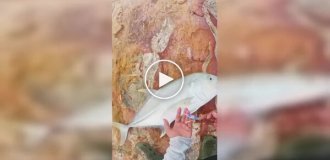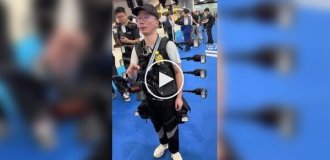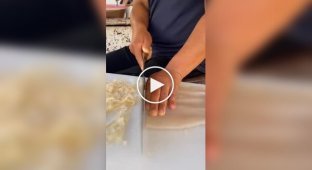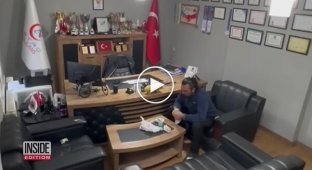Chinese "Squid Game": man paid for a 26-day isolation test (4 photos)
A company in China collected $7,000 from people to spend 26 or 30 days in complete isolation, journalists said. For the slightest violation, participants were kicked out, while the company received money with minimal effort. 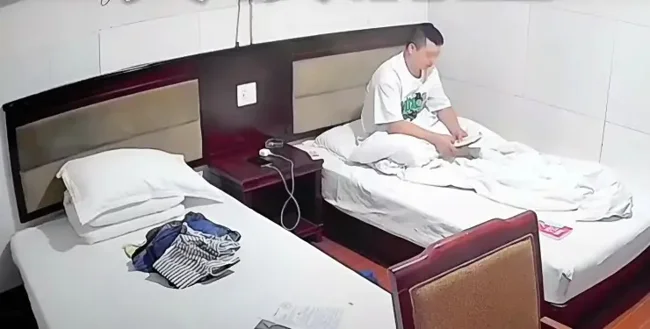
A Chinese man decided to take part in a test, according to which he hoped to receive $120,000. The test cost almost $7,000. The man paid three times, each time ending the test early, losing money and not receiving any winnings. After the third loss, suspicions arose about a fraudulent scheme. About the invention of Chinese companies, similar to the TV series "The Squid Game".
The portal drew attention to the publication of the Huashang Daily, which talked about a Chinese man named Jan. Jan was unemployed and learned about an interesting way to earn money - for staying in a closed room under the surveillance of video cameras. For such "self-discipline training" the company Xian Mulin Culture Communication Company paid money. The main rules were not to cover your face for more than three seconds, not to close the beer, to use the phone for several hours and then put it back, to turn on and off the light once a day until 6 am. At the same time, in order to take part in the program, it was necessary to deposit certain funds: the amount is greater, the longer the person was locked in the room. Jan made several attempts: he paid money and lost each time. As a result, he suspected that the company was probably implementing a fraudulent money-making scheme in this way, so he filed a lawsuit. 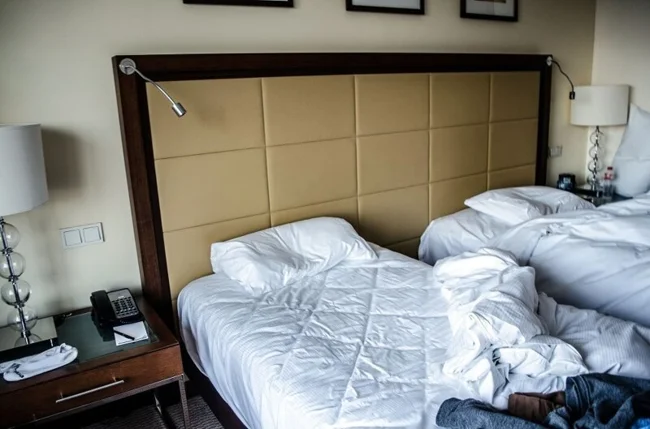
"The lawyer claims that the rules of the competition were unreasonable and unfair, placing a serious psychological burden on the participants," journalists quoted the lawyer who will represent Zhang in court as saying.
As it turned out, the Chinese man made three attempts before he suspected something was wrong. On September 24, he paid 6,900 yuan ($930) to spend 26 days in isolation and receive 860,000 yuan (or $120,000). However, he was kicked out within the first 24 hours because the man covered his face for more than three seconds. There was another attempt, on September 25, and he was kicked out again because he turned his back to the camera. Then Jan borrowed another $930 and lasted 10 days and was kicked out because he closed the beer. Finally, a relative of the Chinese man suggested that it was a scam to get money, and the man stopped to file a lawsuit, the portal reported. 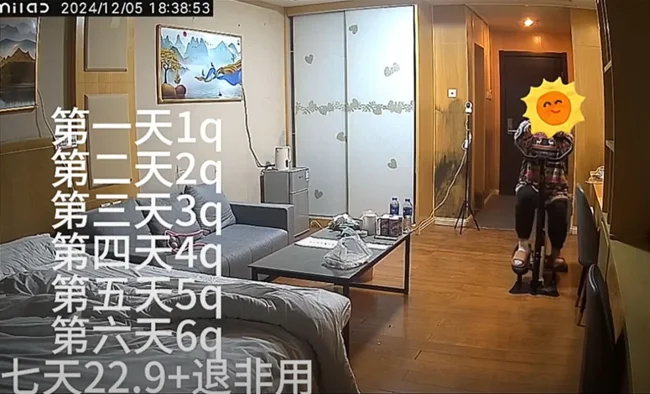
Challenge in China - details
Journalists investigated a strange challenge that appeared in China and about which videos are being filmed for the Chinese analogue of TikTok - for the Douyin network. We are talking about companies that offer to earn "easy money" on a test, at the end of which they give out $120 thousand or another amount. The task is that a person is isolated in a room, in which he must stay for a certain number of days, following certain simple rules. The portal called this test an imitation of the "Squid Game" - after the name of the TV series in which people were killed for the sake of winning. The portal published a series of screenshots with footage of the test. You can see the participants who are in rooms under surveillance by cameras. 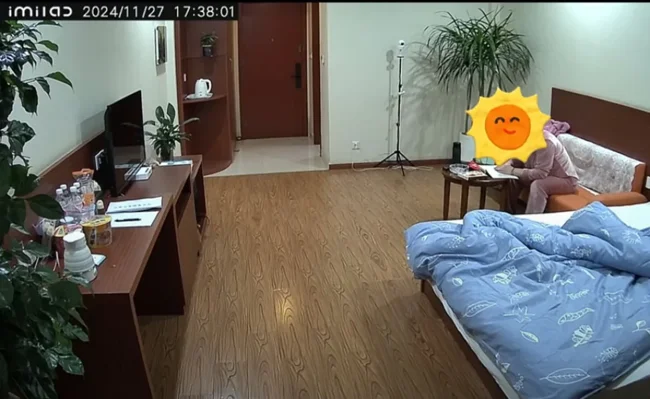
The longer the participant in the game hopes to stay in isolation, the more money he contributes. The most serious challenge is 26 days of isolation and $120,000 for the winner, the article says. For nine days, the prize is 58,000 yuan (or almost $8,000), for six days - 28,000 yuan (almost $4,000), for three days - 6,800 yuan ($930). The minimum requirements for participants are anyone between the ages of 45 and 50 in normal health. They also describe what is allowed to do - "read books, draw, knit, or enjoy the view from the window." As they found out from the example of Zhang, people find it difficult to follow the rules and they fly out of the challenge, losing their own money and the chance to win. Another Chinese man who joined the challenge paid 6,000 yuan to win 250,000 yuan after 30 days of isolation, but lost because he covered his face with a pillow, according to the article, which suspected fraud and gambling.





